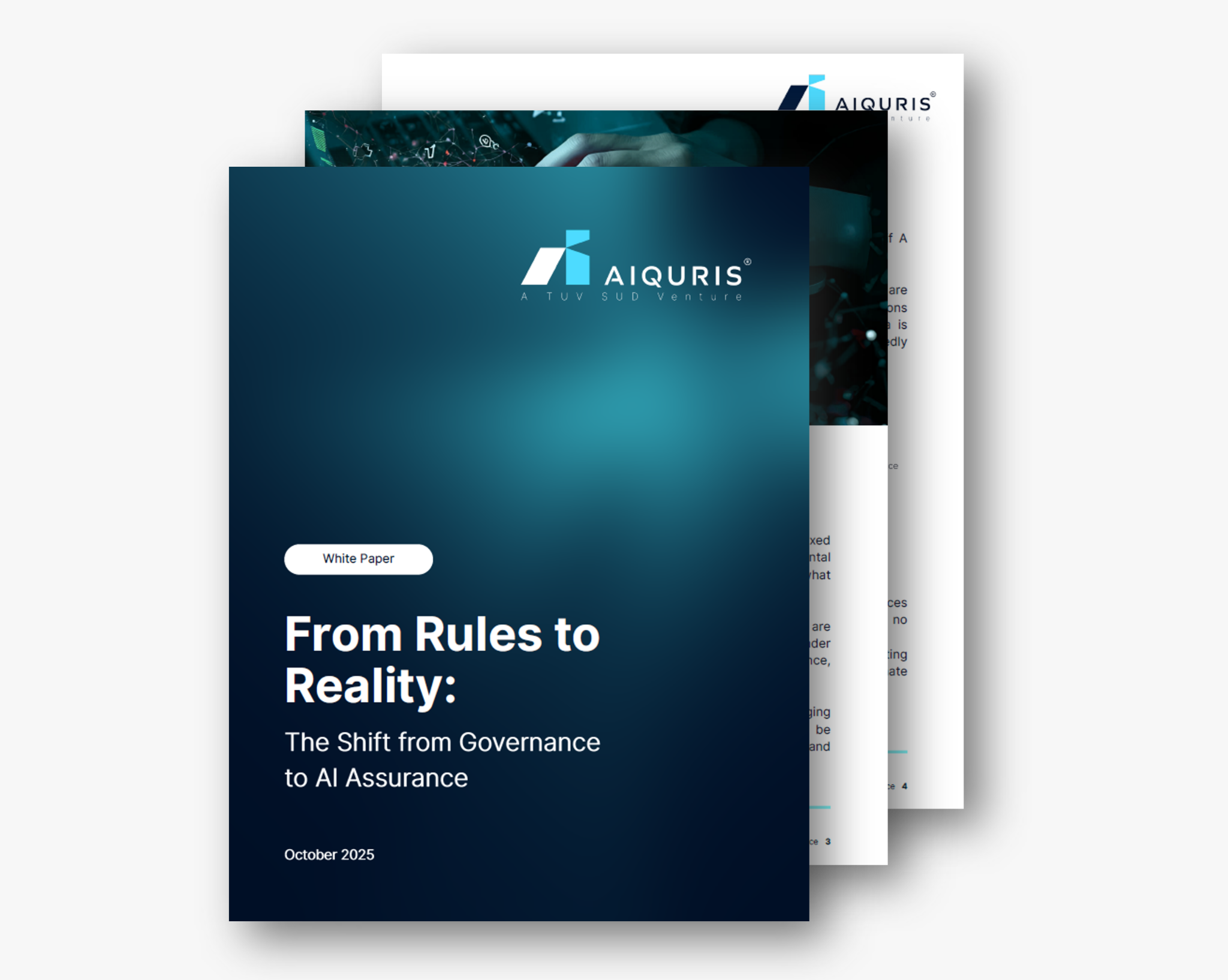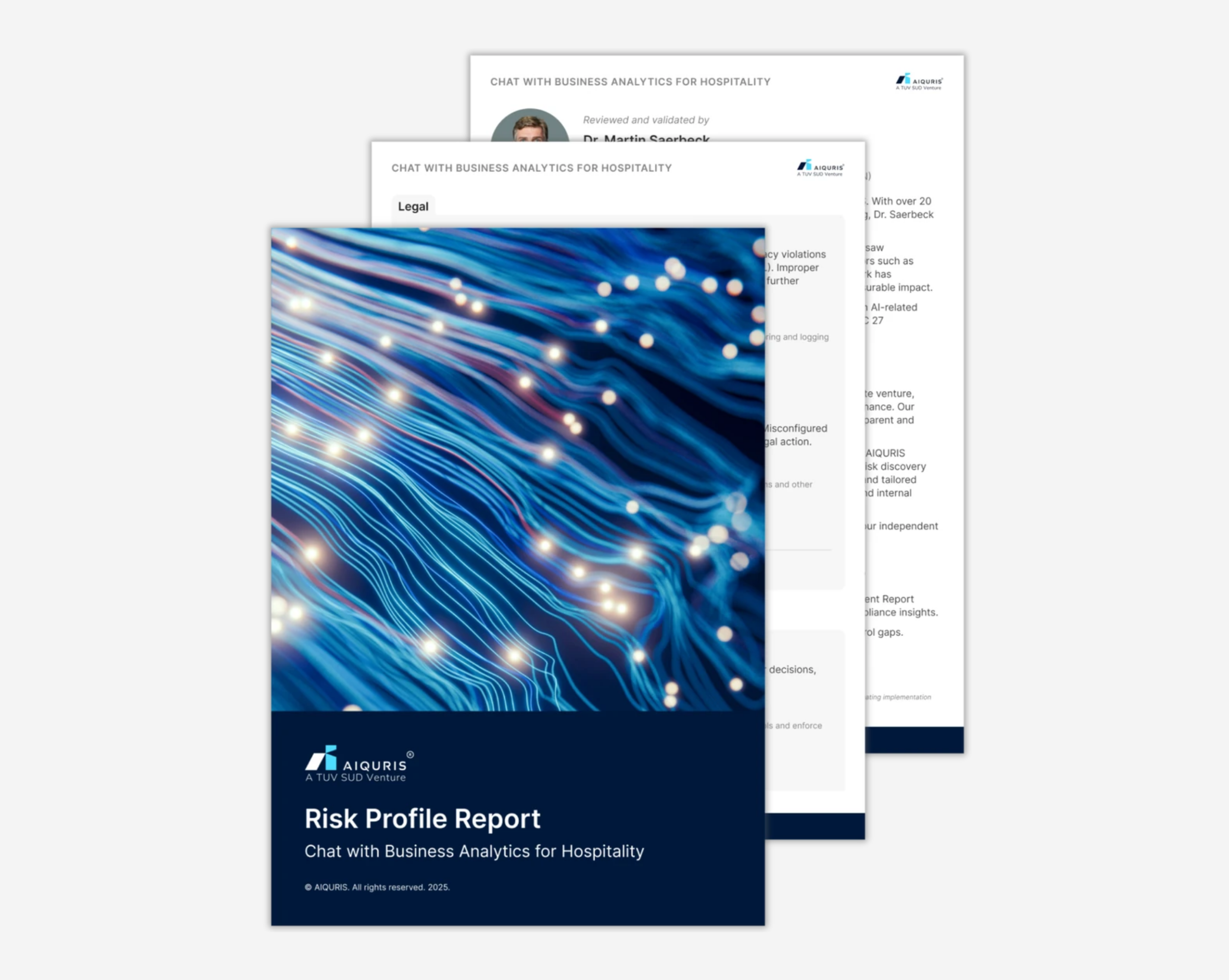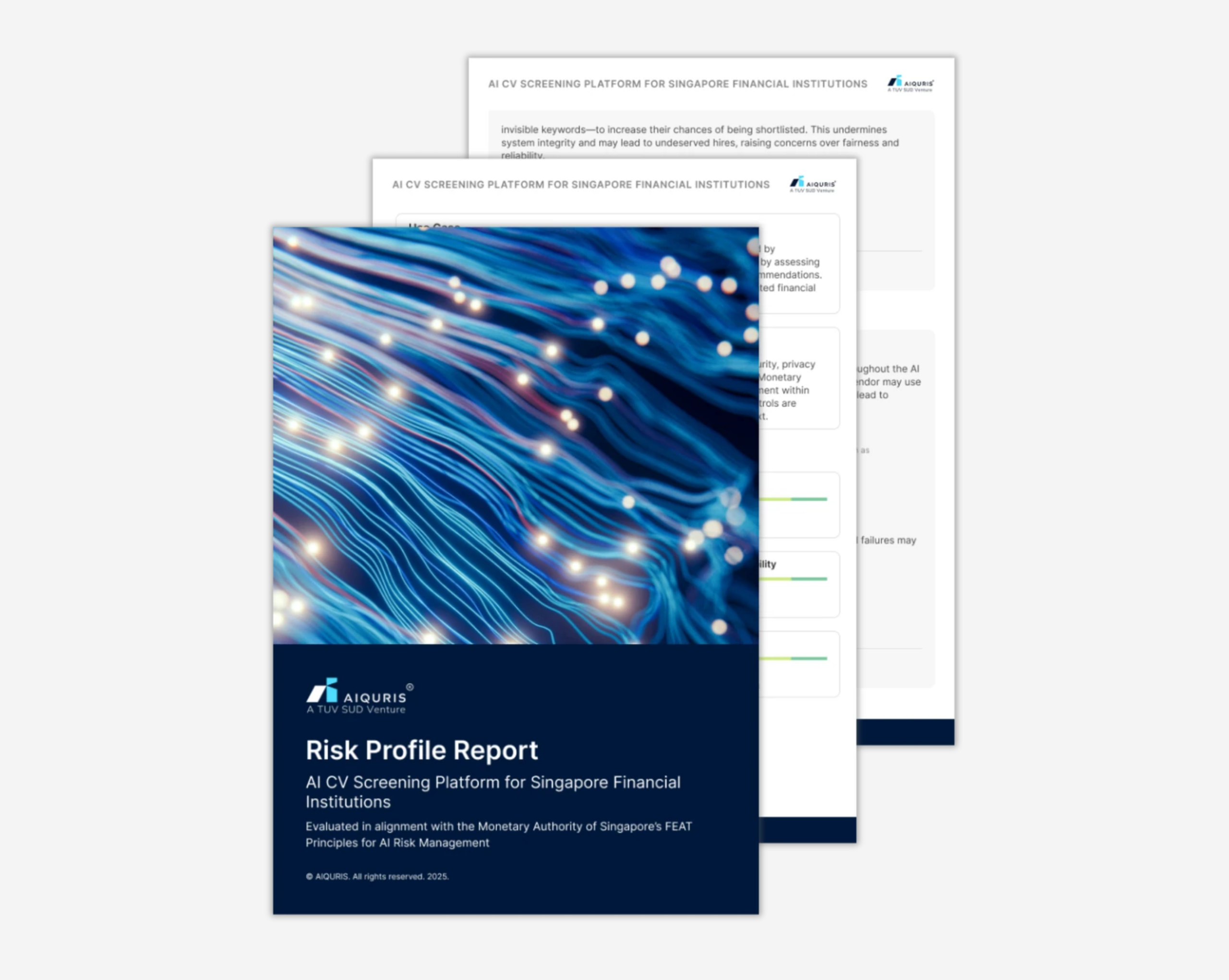


Adobe, a behemoth in the digital space, recently announced updates to its ToS, sparking significant debate and concern among its approximately 20 million Creative Cloud users. The updated terms, effective February 17, 2024, which involved changes to sections 2.2 and

AI-powered business analytics chatbots for hospitality promise faster, smarter decisions through natural language queries. However, our latest AIQURIS risk assessment uncovers serious concerns regarding these systems. From commercial data leaks and automation bias to hallucinations and model drift, unmitigated risks

AI-based CV screening tools are now common in regulated sectors, but do these systems truly meet Singapore’s strict financial regulations? Our report uncovers significant issues regarding bias, explainability, and system reliability. Conducted by AI and international standards experts at AIQURIS,

Artificial intelligence (AI) has been a cornerstone of innovation in the aviation industry for decades, quietly driving advancements across the value chain. From streamlining operations to enhancing safety protocols, AI has long been an integral part of commercial aviation. However,
Whether you're interested in our technology, looking to collaborate, or just want to learn more about AIQURIS, we are happy to advise. Let us know what you need and we will connect you with the right expert.
Talk to an AI adoption expert to assess risks and accelerate AI deployment.